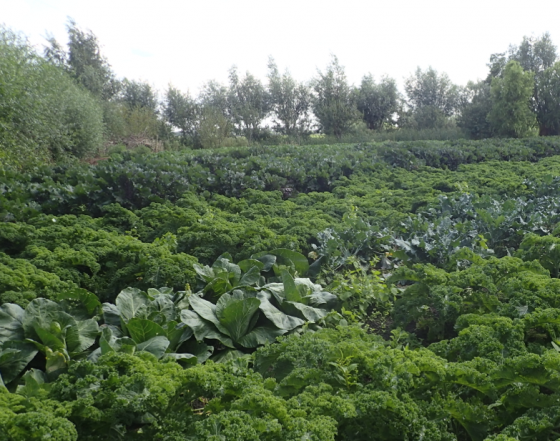More farmers go organic, but the changeover is slowing down


The number of farmers converting to organic methods has fallen for the sixth year in a row, according to figures from certification agency Skal.
Nevertheless, 39 more farms and 90 more trade and processing companies are now under Skal supervision than at the end of 2019, the agency said on Thursday.
At the same time, the amount of land being farmed organically has now gone up 6% to nearly 80,000 hectares, Skal said, although most of the growth is down to companies which were already certified expanding their operations.
Organic farmers association Bionext blamed the declining interest in switching methods partly on the cost of conversion. In addition, ‘the decline is not only caused by the uncertain strategy towards farming in the Netherlands but the lack of market demand,’ Bionext said.
Farmers who do decide to make the change have to wait two years before their produce can officially labeled organic, which means they are investing without benefiting, Bionext says.
Shops
Last June, researchers at IRI Nederlands said organic food has yet to make the expected breakthrough in Dutch supermarkets and still only accounts for just over 3.2% of sales at big food retailers such as Jumbo and Albert Heijn.
There are some organic hits, including eggs, which now account for 16.6% of the market, as well as tea, coffee and chocolate products.
Previous research has suggested that price is a major reason why consumers don’t buy more organic products.
Nevertheless, organic food lobby group Bionext said in May that in 2019, 95.1% of all Dutch households bought at least one organic product and almost nine in ten did this in a supermarket.
Thank you for donating to DutchNews.nl.
We could not provide the Dutch News service, and keep it free of charge, without the generous support of our readers. Your donations allow us to report on issues you tell us matter, and provide you with a summary of the most important Dutch news each day.
Make a donation